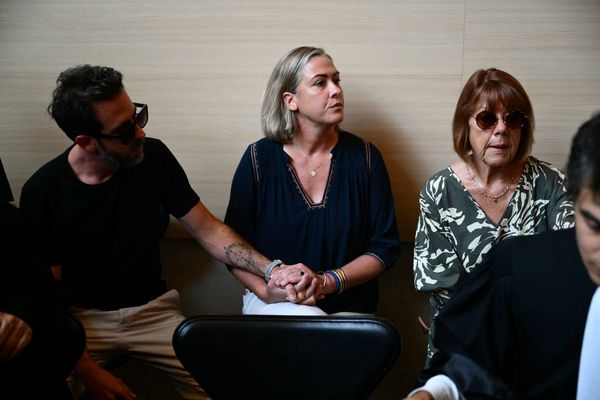There has been a pleasing symmetry to Ash Barty's run at Wimbledon in the past fortnight.
When the world number one steps onto the court to face the Czech Republic's Karolína Plíšková in the final on Saturday at 11:00pm AEST, it will be 50 years since 19-year-old wunderkind Evonne Goolagong claimed the women's title with a shockingly comprehensive defeat of Margaret Court.
Goolagong Cawley was also the last Australian to win the women's singles, in 1980.
Barty herself is now 10 years on from her junior Wimbledon triumph, which heralded the arrival of an unconventional and unlikely superstar. In those times, standing among the game's power hitters, she looked like an autograph-hunter.
In the interim, she has given tennis away, shown mastery of another professional sport, and returned to claim not just major titles and the sport's top ranking, but the rarefied status of universally popular Australian sporting star.
Has anyone ever had a bad word to say about her? Tennis is overladen with egos and prima donnas. About Barty, there are no such airs.
When it was announced last year that the AFL would break with the tradition of old footballers presenting the premiership cup and have Barty hand it to her beloved Tigers, what might have been shock jock fodder was accepted without debate.
Knocking back beers in the stands, cheering from the edge of her seat, Barty was authentic. She always is.
Barty being her wholesome self, there was also no hint of cynicism when she opened this Wimbledon campaign wearing a scallop-hemmed dress in tribute to Goolagong Cawley's trailblazing performance of 1971.
A Ngaragu woman, Barty particularly embraces the role of inspiring Indigenous kids to play her sport.
The dress is a billboard, of course. Tennis is one giant billboard.
But with her compact brilliance, her humility and that perma-smile — not unlike Goolagong's — Barty transcends all that; the player of a game rather than a personal brand. She is never obviously selling something.
Every summer in Melbourne now, as the Australian Open approaches, Barty features on a freeway overpass billboard for her apparel sponsor.
For the other 11 months of the year, the space is occupied by the gurning mugs of FM radio hosts whose jobs are to talk endlessly about themselves at screaming volume.
The metaphoric qualities are abundant.
Barty doesn't scream. Well, maybe she does at the footy. When she talks about herself, it is usually as a segue to thanking or complimenting someone else.
When she loses big matches, it never hints at internal chaos. It prompts no grand theories. Usually, it just looks like she had an off day, or that her opponent had a particularly good one.
At those times, Barty shrugs, shakes hands and smiles.
The other dovetail this week is that Barty's ascent coincides with Muralag and Nyunga NBA star Patty Mills's elevation to the status of Olympic flag bearer.
Like Barty, Mills's name is now a byword for humility and leadership by example.
It feels like something fresh and new, but it is also a return to the days of Goolagong and Rod Laver, when Australian sporting heroes were often bashful and gracious, rather than aggressive "battlers".
Mills and Barty suggest that if sport is really an influencer of Australian identity, other institutions should embrace the potential of Indigenous leadership.
It is not just the names on All England Club honour boards that draw Evonne Goolagong Cawley and Ash Barty together. They are mentor, mentee and mutual source of inspiration.
When Barty struggled and took her break from the game, Goolagong Cawley's advice was the simplest and best.
Last year, Barty didn't play at Wimbledon, but the tournament prompted the release of The Impossible Dream, a short, Barty-narrated documentary on Goolagong's 1971 title.
It breathed fresh life into a familiar story: an eight-year-old Goolagong's discovery of Wimbledon via comic strips and the dream that formed in her mind when she discovered it was a real place; her ability to brush off the prejudices of the times and the corresponding effortlessness of her "saunter and volley" play; the teenager's stunning upset of all-conquering Court; Barty's discovery of inspiration.
"She was such a beautiful player that I found myself watching her when I was playing her," Chris Evert says in the film.
"She was so likeable. You couldn't hate her."
Evert could be describing Barty. As could Goolagong Cawley, in a summary of her own ethos.
The downside of that affability was something Goolagong Cawley pondered after her 1980 triumph, which came three years after motherhood, and following a decade of injuries and near-misses at Wimbledon.
"In the past when I have played finals, I have felt too loose and not aggressive enough," she said at the time.
"I haven't wanted to win badly enough."
Yet the impression she imparted, even in loss, was eternal grace.
That was then, this is now. Barty started this tournament with barely three weeks of recovery time from the hip injury that ended her French Open tilt.
After dismantling Angelique Kerber in the Wimbledon semi-final, she said she'd never played better or dreamed bigger. The win prompted the rare sight of unchecked emotion from Barty, which suggested it meant something different this time.
In truth, it means the same thing to her every time. Later, Barty spoke of the childlike excitement she always experiences at Wimbledon.
"Having that feeling when I walk through the gates of the All England Club for the first time when I was 15, that feeling is still the same each and every day I walk through the gates now," she said.
It also explained what makes Barty special — her unpretentious and unaffected thrill at mastering the dreamy tournament of Goolagong's comic strip.
It started with Evonne's dress. Win or lose, it'll end with her smile.







